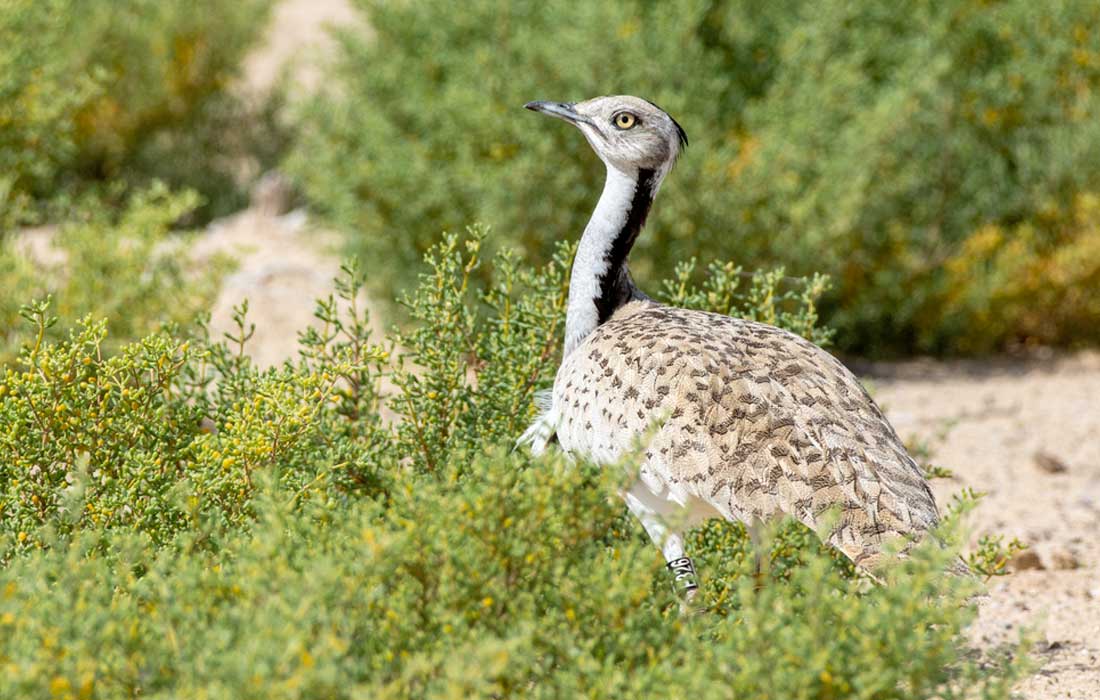UAE and Mongolia Forge Conservation Alliance for Asian Houbara and Great Bustards at IUCN Congress
ABU DHABI – In an ambitious and historic initiative for wildlife preservation, the United Arab Emirates and Mongolia have formalized a Memorandum of Understanding (MoU) aimed at the conservation of the Asian Houbara and Great Bustard species. This agreement, signed during the IUCN World Conservation Congress, which took place from October 9 to 15, 2025, at the Abu Dhabi National Exhibition Centre, underscores a significant commitment to regional environmental stewardship.
The MoU was executed in the presence of key stakeholders, including Mohammed Ahmed Al Bowardi, the Deputy Chairman of the International Fund for Houbara Conservation (IFHC), alongside Batbayar Bat, Mongolia’s Minister of Environment and Climate Change. This partnership represents a deepening collaboration between the two nations, reinforcing their dedication to environmental sustainability and the protection of endangered species that hold cultural significance and ecological importance in both territories.
Notably, the partnership is backed by the Erth Zayed Philanthropies and highlights a shared vision for environmental conservation that transcends geographic boundaries. The agreement is positioned as a critical step in a long-standing cooperation that has seen both nations invest time and resources into the protection of their natural heritage.
A recent study utilizing satellite tracking has unveiled that the migratory path of the Mongolian Asian Houbara culminates in the deserts of Abu Dhabi. This vital ecological connection reinforces the necessity for joint conservation efforts, especially as these birds face numerous threats to their habitats and overall survival. The MoU will facilitate collaborative research, promote comprehensive field studies, and implement sustainable conservation programs tailored to the needs of both species.
Al Bowardi has underscored the strategic importance of this agreement, describing it as a pivotal milestone in the ongoing efforts to safeguard species that are integrally woven into the fabric of the natural heritage of the UAE and Mongolia. Furthermore, he expressed confidence in the IFHC’s capacity to leverage its expertise in avian biology, habitat management, and captive breeding to aid Mongolia’s conservation strategies effectively. His remarks also invoked the legacy of the late Sheikh Zayed bin Sultan Al Nahyan, a champion of environmental initiatives in the UAE, who set a precedent for responsible stewardship of the country’s rich ecological resources.
The agreement’s focus includes rigorous fieldwork aimed at population monitoring, survival studies, and migration tracking. By utilizing extensive data collected between 2017 and 2023, the two nations aim to inform targeted conservation planning that is responsive to the dynamic environmental factors impacting these species’ survival. The implementation of joint research initiatives will not only facilitate data sharing but also establish a collaborative framework for addressing challenges that adversely affect migratory bird populations.
This growing alliance exemplifies the UAE’s commitment to expanding its role in global conservation dialogues and initiatives. It aligns with the nation’s broader mission to maintain biodiversity and environmental integrity through substantive international partnerships. The collaboration with Mongolia is particularly important as it reflects a recognition of shared ecological destinies and mutual responsibilities in global efforts to mitigate the impacts of climate change and habitat loss.
Certainly, the MoU represents more than just a bureaucratic agreement; it signifies a transformative step in wildlife conservation that could influence not only regional biodiversity strategies but also set a precedent for international cooperation in environmental protection. The implications of this partnership may resonate well beyond the immediate benefits for the Asian Houbara and Great Bustard, potentially offering a model for future collaborations among nations facing similar ecological challenges.
As global discussions surrounding environmental sustainability become increasingly urgent, the UAE and Mongolia’s commitment to joint conservation efforts stands as a beacon of hope for advocates of biodiversity. This initiative might inspire other nations to forge similar partnerships, bolstering a global movement to preserve our planet’s irreplaceable biological heritage for future generations.
—
Tags: #BusinessNews, #EnvironmentNews, #Animals #UAE, #Mongolia

